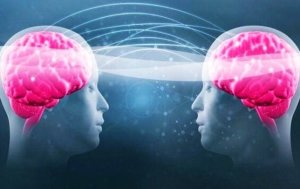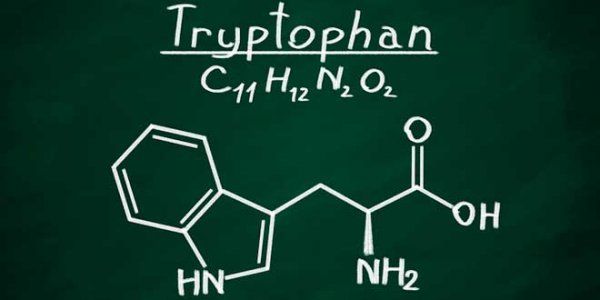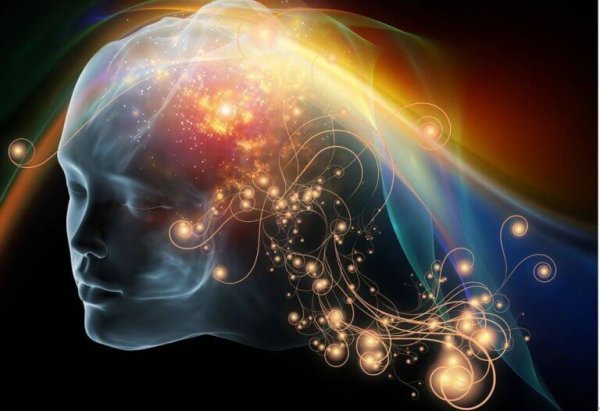Tryptophan and Serotonin: Learn Why Your Well-Being Depends on Them


Written and verified by the psychologist Sergio De Dios González
Feeling good, sleeping better, fighting pain, slowing down the aging process, being motivated…These are all processes controlled by two biological components that are as fascinating as they are amazing: tryptophan and serotonin. They are also closely linked, because without proper levels of tryptophan, your body can’t make serotonin.
This amino acid (tryptophan) and neurotransmitter (serotonin) significantly impact your mood, health, and cognition. Studies like this one, published by the University of Melbourne, show that there’s a third factor to look at with these two chemicals: our intestines.
Serotonin, also called the happiness hormone, is mainly produced by something called enterochromaffin cells. They’re cells that live inside your intestinal lining.
Tryptophan and serotonin are essential for well-being. The amino acid L-tryptophan is necessary for our brains to produce serotonin. But diet is a big factor, too. Eating inflammatory foods can make it much less effective.
But to make it all possible, you need good levels of tryptophan in your body. That’s the only way your body can do this biological magic and play this neurochemical symphony. Making sure this star-studded team of tryptophan, serotonin, and your intestines work right has a lot to do with your lifestyle.

Metabolizing tryptophan, the key to producing serotonin
The levels of tryptophan and serotonin in your brain depend on certain factors. For example, we know that there are other amino acids that compete with tryptophan in moving across the hematoencephalic barrier.
Foods high in saturated fats, starches, and sugar can “wear out” your tryptophan. They bring down its activity levels and its presence in important areas like your cerebrospinal fluid.
Like we’ve said, when you have lower levels of tryptophan, your body will also metabolize less serotonin. Plus, something scientists have seen with fibromyalgia patients is that they even have lower levels of tryptophan in their blood plasma. That leads to exhaustion, pain, depression, problems sleeping, and more.
L-tryptophan is absolutely the key player in this process. It’s an essential amino acid, which basically means that our bodies can’t actually produce it. It’s something you have to get through your diet, but you can’t eat just anything.
You have to take a lot of care with what you eat and make sure you’re not missing the right kinds of proteins or basic nutrients like vitamin B6 or magnesium.

How to tell if you have low levels of tryptophan and serotonin
A depressed mood is sometimes directly associated with low levels of tryptophan. There are actually a lot of studies that link low levels of tryptophan and serotonin to certain kinds of depression, anxiety disorders, etc. This is very important to think about. It should remind you of how important your lifestyle is.
Now we’re going to look at some of the side effects that come with low levels of tryptophan and serotonin.
- Insomnia.
- Weakness, physical tiredness, prolonged exhaustion.
- Stress and anxiety.
- Depressed, low mood.
- More painful PMS symptoms.
- Food cravings (especially for sugar and carbohydrates). Having a harder time feeling full.
- Cognitive issues: memory errors, lower levels of concentration and attention.
- Digestive problems.

Tryptophan and serotonin: how can you get more of them?
You can naturally boost the tryptophan and serotonin levels in your body. There’s no need to go to the pharmacy to look for dietary supplements. Don’t take supplements unless your doctor has told you to. Don’t take them if you don’t have some kind of medical condition that requires supplements to deal with seriously low levels.
For most people, all it takes is eating enough of the following foods:
Nuts, seeds, and legumes
- Peanuts
- Cashews
- Pumpkin, sunflower, or sesame seeds
- Chickpeas
- Lentils
- Fava beans
- Soy beans
Fruits
- Plantains
- Bananas
- Cherries
- Avocados

Foods rich in B vitamins
- Eggs
- Lean meats
- Dairy
Foods rich in omega-3 fatty acids
- Flax seed oil
- Chia seeds
- Mackerel
- Salmon
- Tuna
- Walnuts
Foods rich in magnesium
- Dark chocolate
- Bran
- Almonds
- Pistachios
- Dried figs
Others
- Baker’s yeast
- Spirulina
As you can see, you can always boost your tryptophan production and help make more serotonin in your body. It’s so much easier than you’d think. But you also have to start eating less of certain unhealthy foods you might love. For example, you should probably eat less fast food, processed food, and prepackaged pastries.
So why not start watching what you eat a little better? After all, your well-being depends on it.
Feeling good, sleeping better, fighting pain, slowing down the aging process, being motivated…These are all processes controlled by two biological components that are as fascinating as they are amazing: tryptophan and serotonin. They are also closely linked, because without proper levels of tryptophan, your body can’t make serotonin.
This amino acid (tryptophan) and neurotransmitter (serotonin) significantly impact your mood, health, and cognition. Studies like this one, published by the University of Melbourne, show that there’s a third factor to look at with these two chemicals: our intestines.
Serotonin, also called the happiness hormone, is mainly produced by something called enterochromaffin cells. They’re cells that live inside your intestinal lining.
Tryptophan and serotonin are essential for well-being. The amino acid L-tryptophan is necessary for our brains to produce serotonin. But diet is a big factor, too. Eating inflammatory foods can make it much less effective.
But to make it all possible, you need good levels of tryptophan in your body. That’s the only way your body can do this biological magic and play this neurochemical symphony. Making sure this star-studded team of tryptophan, serotonin, and your intestines work right has a lot to do with your lifestyle.

Metabolizing tryptophan, the key to producing serotonin
The levels of tryptophan and serotonin in your brain depend on certain factors. For example, we know that there are other amino acids that compete with tryptophan in moving across the hematoencephalic barrier.
Foods high in saturated fats, starches, and sugar can “wear out” your tryptophan. They bring down its activity levels and its presence in important areas like your cerebrospinal fluid.
Like we’ve said, when you have lower levels of tryptophan, your body will also metabolize less serotonin. Plus, something scientists have seen with fibromyalgia patients is that they even have lower levels of tryptophan in their blood plasma. That leads to exhaustion, pain, depression, problems sleeping, and more.
L-tryptophan is absolutely the key player in this process. It’s an essential amino acid, which basically means that our bodies can’t actually produce it. It’s something you have to get through your diet, but you can’t eat just anything.
You have to take a lot of care with what you eat and make sure you’re not missing the right kinds of proteins or basic nutrients like vitamin B6 or magnesium.

How to tell if you have low levels of tryptophan and serotonin
A depressed mood is sometimes directly associated with low levels of tryptophan. There are actually a lot of studies that link low levels of tryptophan and serotonin to certain kinds of depression, anxiety disorders, etc. This is very important to think about. It should remind you of how important your lifestyle is.
Now we’re going to look at some of the side effects that come with low levels of tryptophan and serotonin.
- Insomnia.
- Weakness, physical tiredness, prolonged exhaustion.
- Stress and anxiety.
- Depressed, low mood.
- More painful PMS symptoms.
- Food cravings (especially for sugar and carbohydrates). Having a harder time feeling full.
- Cognitive issues: memory errors, lower levels of concentration and attention.
- Digestive problems.

Tryptophan and serotonin: how can you get more of them?
You can naturally boost the tryptophan and serotonin levels in your body. There’s no need to go to the pharmacy to look for dietary supplements. Don’t take supplements unless your doctor has told you to. Don’t take them if you don’t have some kind of medical condition that requires supplements to deal with seriously low levels.
For most people, all it takes is eating enough of the following foods:
Nuts, seeds, and legumes
- Peanuts
- Cashews
- Pumpkin, sunflower, or sesame seeds
- Chickpeas
- Lentils
- Fava beans
- Soy beans
Fruits
- Plantains
- Bananas
- Cherries
- Avocados

Foods rich in B vitamins
- Eggs
- Lean meats
- Dairy
Foods rich in omega-3 fatty acids
- Flax seed oil
- Chia seeds
- Mackerel
- Salmon
- Tuna
- Walnuts
Foods rich in magnesium
- Dark chocolate
- Bran
- Almonds
- Pistachios
- Dried figs
Others
- Baker’s yeast
- Spirulina
As you can see, you can always boost your tryptophan production and help make more serotonin in your body. It’s so much easier than you’d think. But you also have to start eating less of certain unhealthy foods you might love. For example, you should probably eat less fast food, processed food, and prepackaged pastries.
So why not start watching what you eat a little better? After all, your well-being depends on it.
This text is provided for informational purposes only and does not replace consultation with a professional. If in doubt, consult your specialist.







